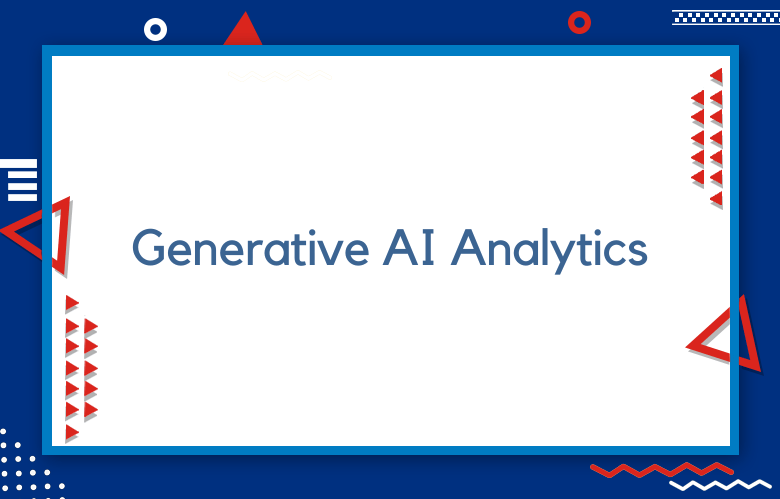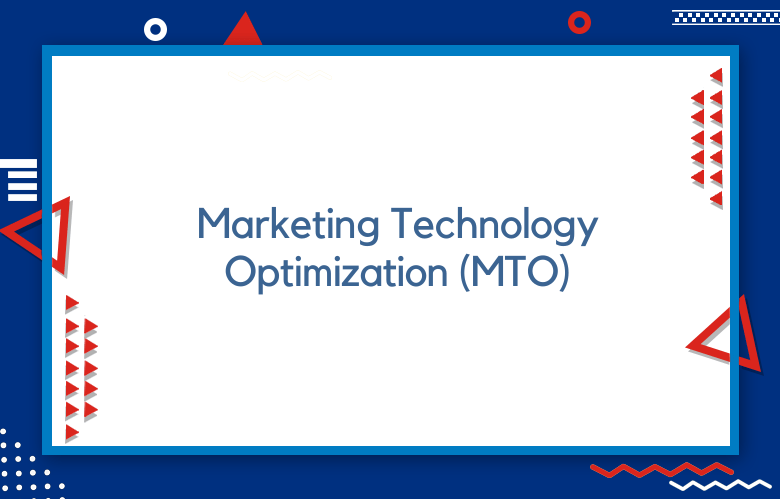Generative AI Analytics and Predictions for Marketing Data

As the world becomes increasingly digital, organizations are collecting more data about their customers than ever before. However, more than just having data is required. Companies need tools to help them identify meaningful patterns, trends, and insights to optimize business outcomes.
That’s where generative AI analytics come in. By applying machine learning and predictive algorithms to marketing data, organizations can gain a deeper understanding of their customers, identify areas for improvement, and make data-driven decisions. We will explore the power of generative AI analytics and predictions for marketing data.
What is Generative AI Analytics?
Generative AI analytics, also known as Generative Adversarial Networks (GANs), is a machine learning technique that allows AI systems to learn the correlations between input data sets.
It then utilizes this knowledge to generate new data matching the original correlation pattern. The latest data can be used to predict future outcomes and gain insights into new ways not previously seen.
GANs have been effective in various applications, including image and speech recognition and text analysis, but now they are becoming more available in marketing data analysis.
What are Generative AI Analytics and Predictions?
Generative AI analytics and predictions are artificial intelligence that uses machine learning to analyze large data sets and generate insights and predictions.
These algorithms can recognize patterns and trends in data that would be difficult or impossible for humans to detect. They can then use this information to accurately predict future outcomes and behaviors.
In marketing, generative AI analytics and predictions are used to understand consumer behavior, optimize marketing campaigns, and improve overall business performance.
How do Generative AI Analytics and Predictions Work
Generative AI analytics and predictions use machine learning algorithms to analyze large structured and unstructured data sets.
This data can include customer demographics, social media trends, and web traffic patterns.
The algorithms identify patterns and trends in the data and then use this information to predict future outcomes. These predictions can optimize marketing efforts, identify new business opportunities, and improve performance.
Why are Generative AI Analytics and Predictions Important for Modern Marketing?
In today’s fast-paced business environment, marketing teams need to be able to make data-driven decisions quickly and efficiently. Generative AI analytics and predictions allow companies to do just that.
These algorithms can help businesses optimize their marketing efforts and stay one step ahead of the competition by analyzing vast data and providing accurate predictions about customer behavior.
This technology is also helpful in identifying new market opportunities and improving overall business performance.
How can Companies Implement Generative AI Analytics and Predictions?
Implementing generative AI analytics and predictions can be complex, requiring machine learning and data analytics expertise. However, many companies are turning to third-party providers to help them implement this technology.
These providers offer a range of solutions that can be customized to specific business needs and goals. Some providers even provide cloud-based solutions that eliminate the need for companies to invest in expensive hardware or software.
The Power of Generative AI Analytics and Predictions for Marketing Data
The marketing world constantly evolves, with new technologies and techniques emerging daily. The rise of generative AI analytics and predictions is one of the most exciting developments in recent years.
This cutting-edge technology is helping companies make data-driven decisions with unprecedented accuracy and speed. We’ll look at generative AI analytics and predictions, how they work, and why they’re essential for modern marketing.
AI has revolutionized marketing data analytics and revolutionizing the way we make predictions.
Generative AI analytics is a relatively new approach to data analysis that utilizes deep learning to generate insights and make predictions that would not be possible with traditional methods. We will discuss Generative AI Analytics and how it can be used to predict marketing data.
Understanding Generative AI Analytics
Generative AI analytics are forms of artificial intelligence that can learn and make predictions based on data fed into them.
Algorithms such as GANs (Generative Adversarial Networks) can generate new insights and predictions from raw data, identifying previously unknown patterns and connections.
In marketing, generative AI analytics can provide insights into customer behavior, market trends, and product performance.
Predictive Analytics in Marketing
Predictive analytics is a specific application of generative AI that has gained popularity in marketing. Predictive analytics uses statistical and machine learning algorithms to analyze historical data and predict future outcomes.
In marketing, predictive analytics can forecast customer behavior, identify new market opportunities, and optimize marketing campaigns. It can also help organizations make data-driven decisions based on real-time data.
Generative AI Analytics for Customer Segmentation
Generative AI analytics also significantly impact customer segmentation, which is crucial for targeted marketing efforts.
Generative AI algorithms can identify distinct customer segments with similar characteristics by analyzing customer demographics, behavior, and interests.
This segmentation can create targeted marketing campaigns that speak directly to a specific group of customers, resulting in more effective marketing efforts and higher revenue.
Optimizing Pricing Strategies Using Generative AI Analytics
Another way in which generative AI analytics can optimize business outcomes is by analyzing pricing strategies.
Generative AI algorithms can help organizations optimize their pricing strategies by analyzing customers’ price sensitivity and the competitive environment. This can lead to increased sales and profits and a stronger competitive position with more effective pricing.
Overcoming Challenges with Generative AI Analytics
While generative AI analytics in marketing has many benefits, some challenges must be addressed. One challenge is the need for high-quality data to train machine learning models.
There are concerns about data privacy and security when dealing with customer data. Organizations must ensure proper data governance processes to mitigate these risks.
Conclusion
Generative AI analytics and predictions have the power to revolutionize the way that businesses approach marketing.
By analyzing historical and real-time data with machine learning algorithms, companies can gain deeper insights into customer behavior, optimize marketing campaigns, and make data-driven decisions.
While there are challenges to implementing these technologies, the potential benefits are significant. With the right tools and data governance practices, organizations can reap the rewards of generative AI analytics and stay ahead of the competition.
Call: +91 9848321284
Email: [email protected]



